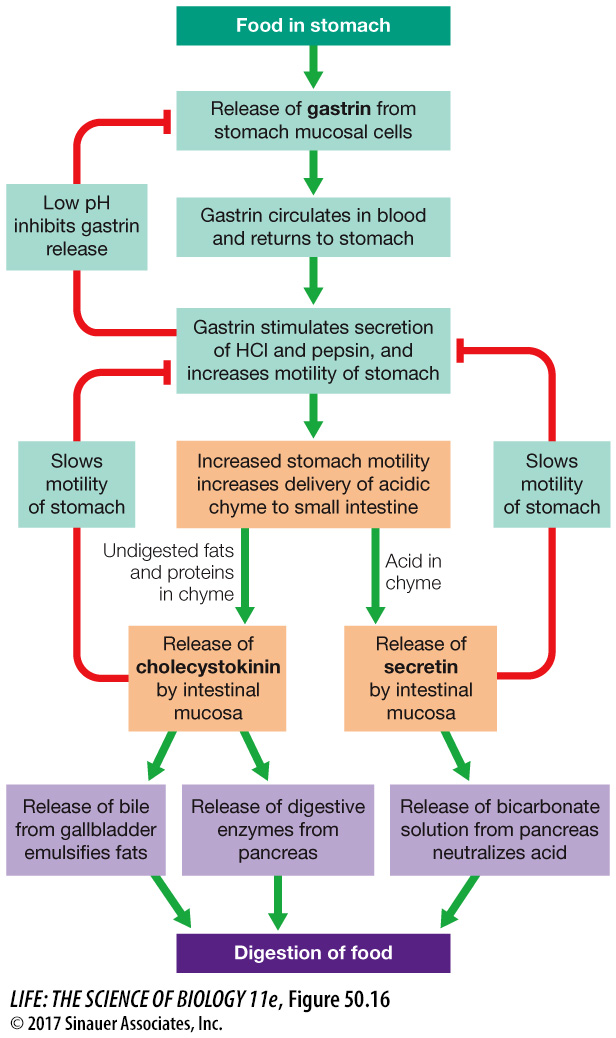Hormones control many digestive functions
Several hormones control the activities of the digestive tract and its accessory organs (Figure 50.16). The first hormone ever discovered came from the duodenum; it was called secretin because it causes the pancreas to secrete digestive juices. We now know that secretin is only one of several hormones that control pancreatic secretion; specifically, secretin stimulates the cells of the pancreatic ducts to secrete a solution rich in bicarbonate ions.

Q: Why do secretin and CCK stimulate the pancreas but inhibit the stomach?
The fact that CCK and secretin can slow the stomach yet stimulate the pancreas means that these two hormones can regulate the passage of food through the digestive tract at a rate that enables complete digestion.
The stimulus that causes the duodenum to release secretin is low pH caused by the arrival of acidic chyme from the stomach. Similarly, the presence of fats and proteins in the chyme stimulates the release of cholecystokinin (CCK), the hormone that stimulates the gallbladder to release bile. CCK also stimulates the pancreas to release digestive enzymes. Both CCK and secretin also have negative feedback effects on the stomach. They slow the movements of the stomach, thus slowing the delivery of chyme into the small intestine and allowing more complete digestion in the duodenum.
The presence of food in the stomach stimulates cells in the lower region of the stomach to secrete a hormone called gastrin. Gastrin returns to the stomach in the blood and stimulates the secretion of digestive juices and also increases the motility of the stomach. Gastrin release begins to be inhibited when the pH of the stomach contents falls below 3—